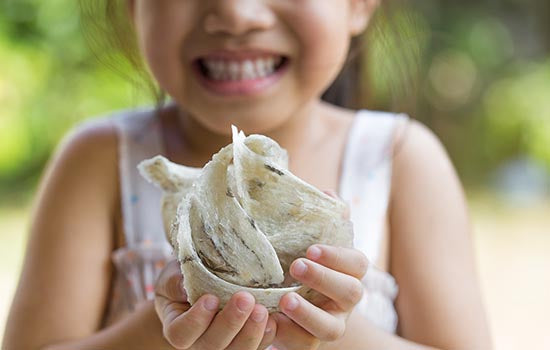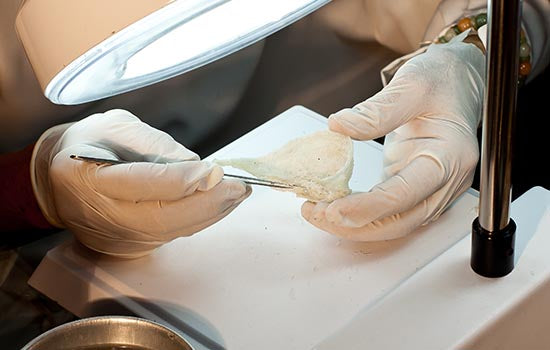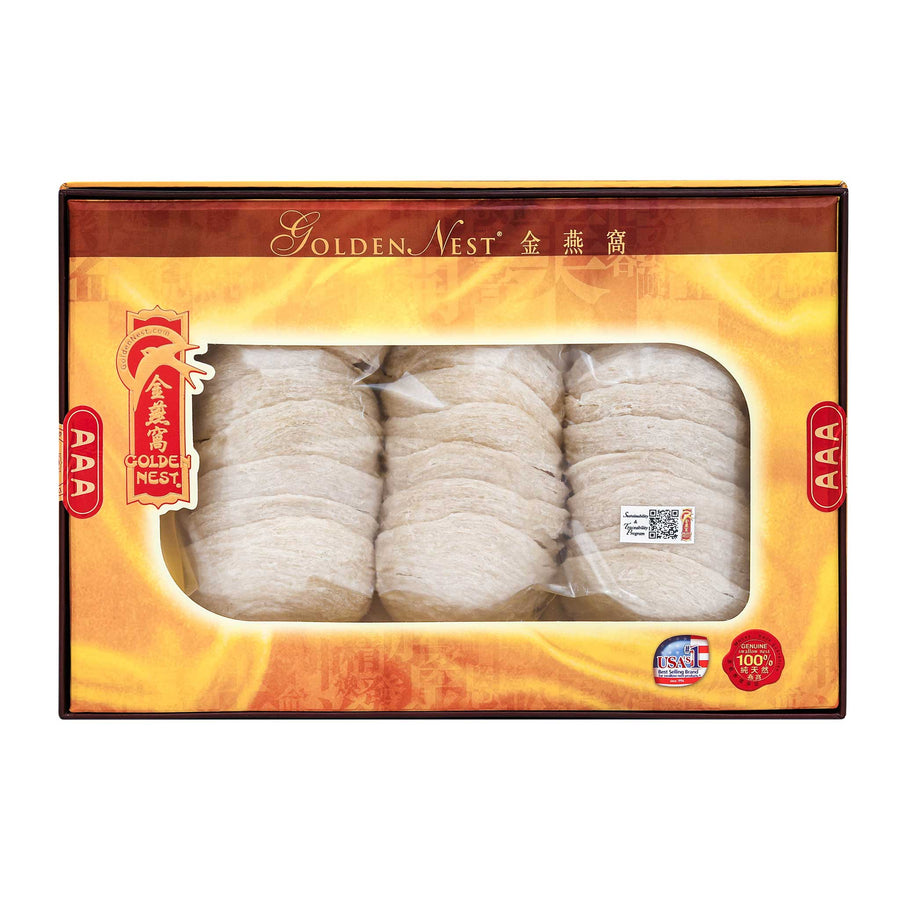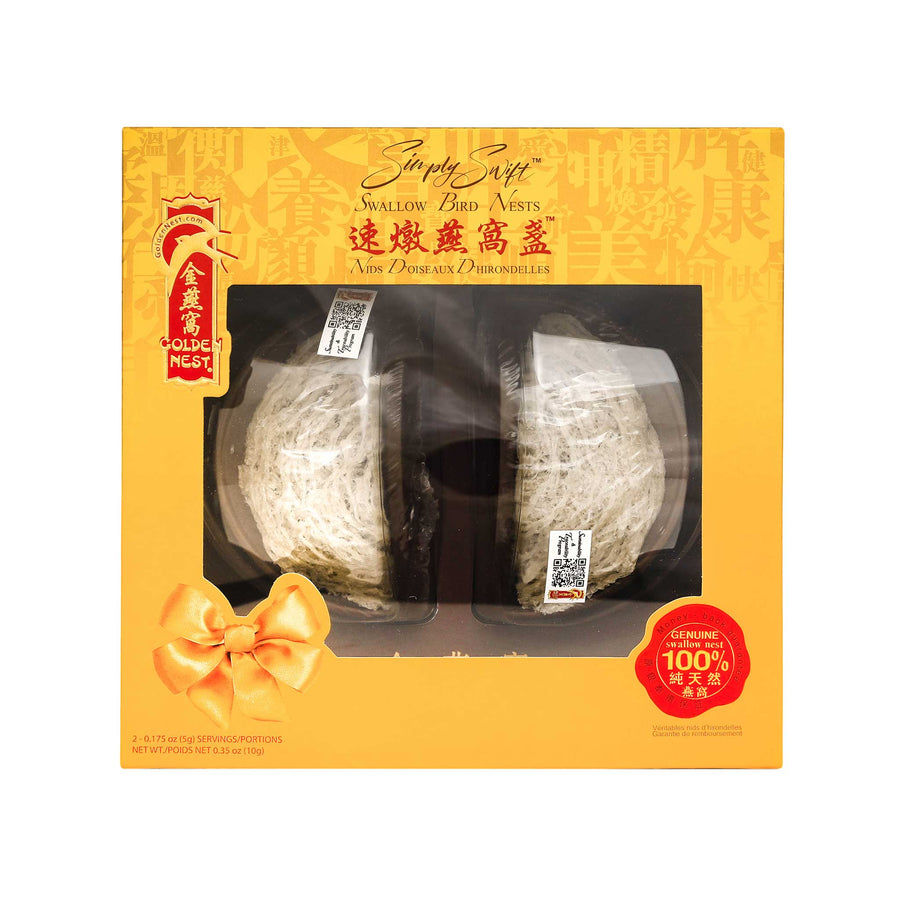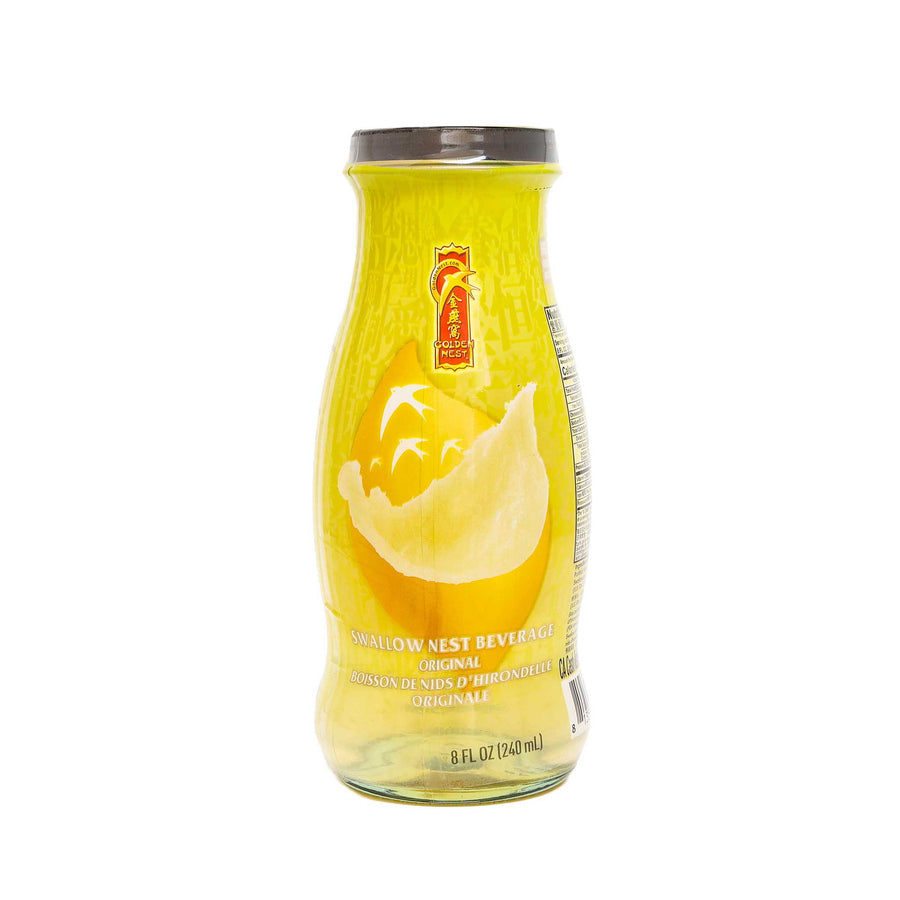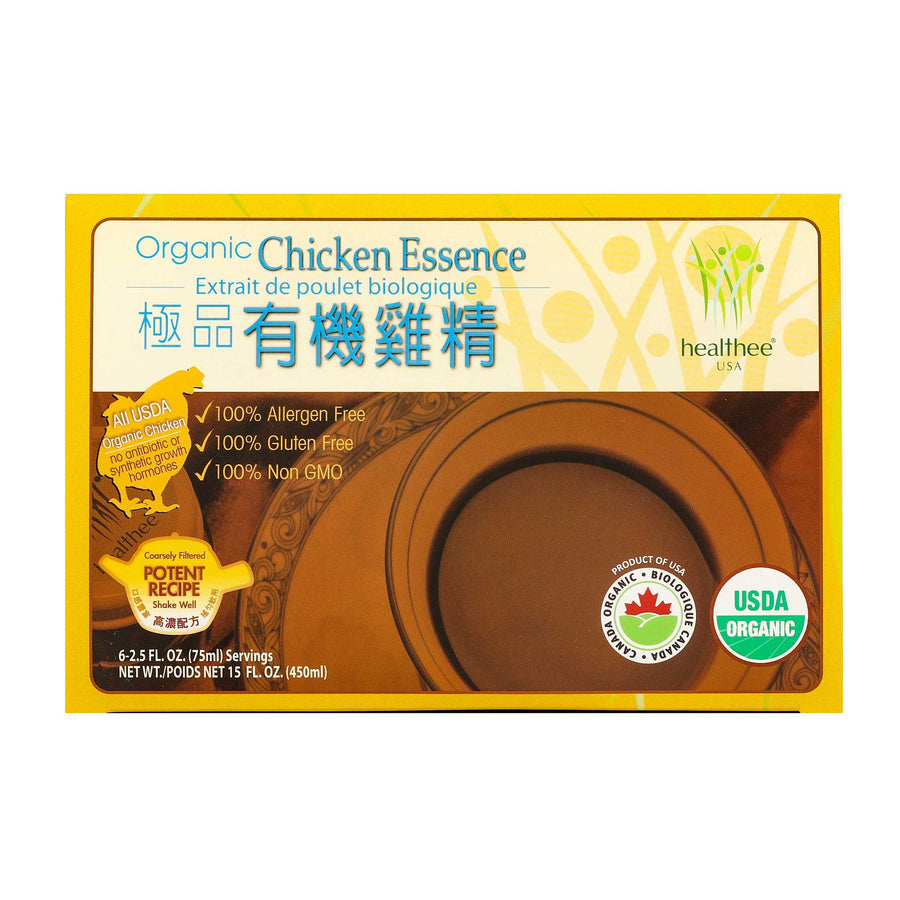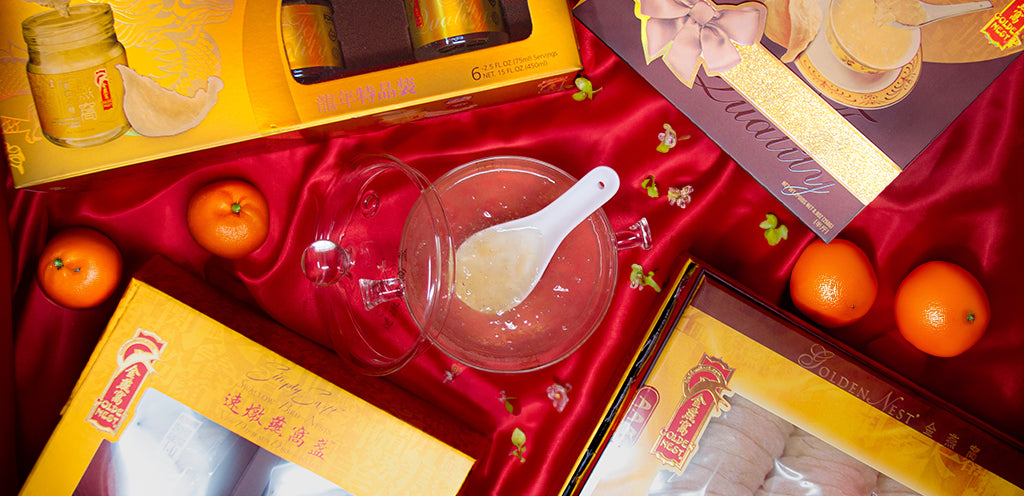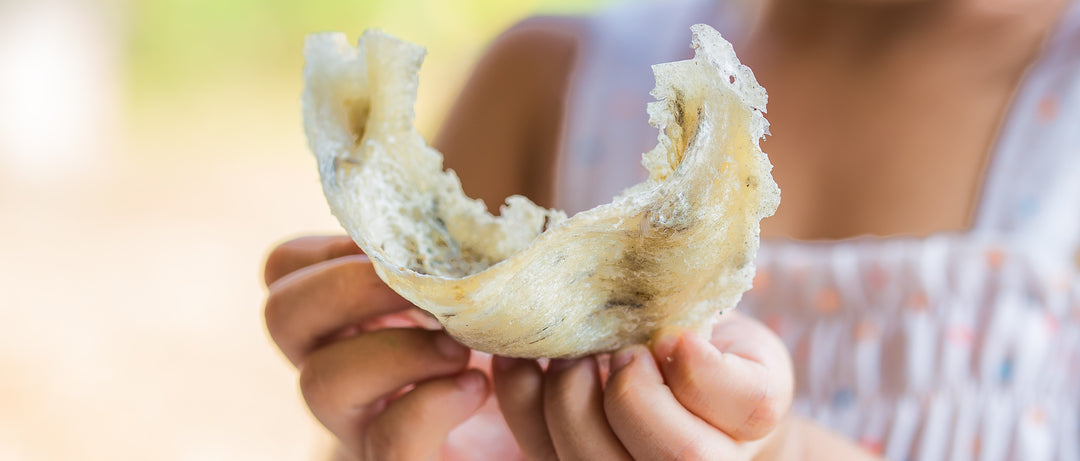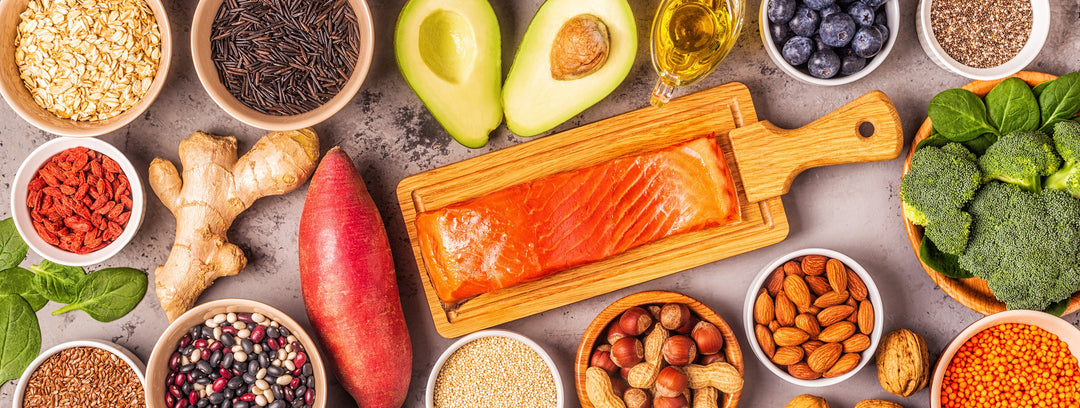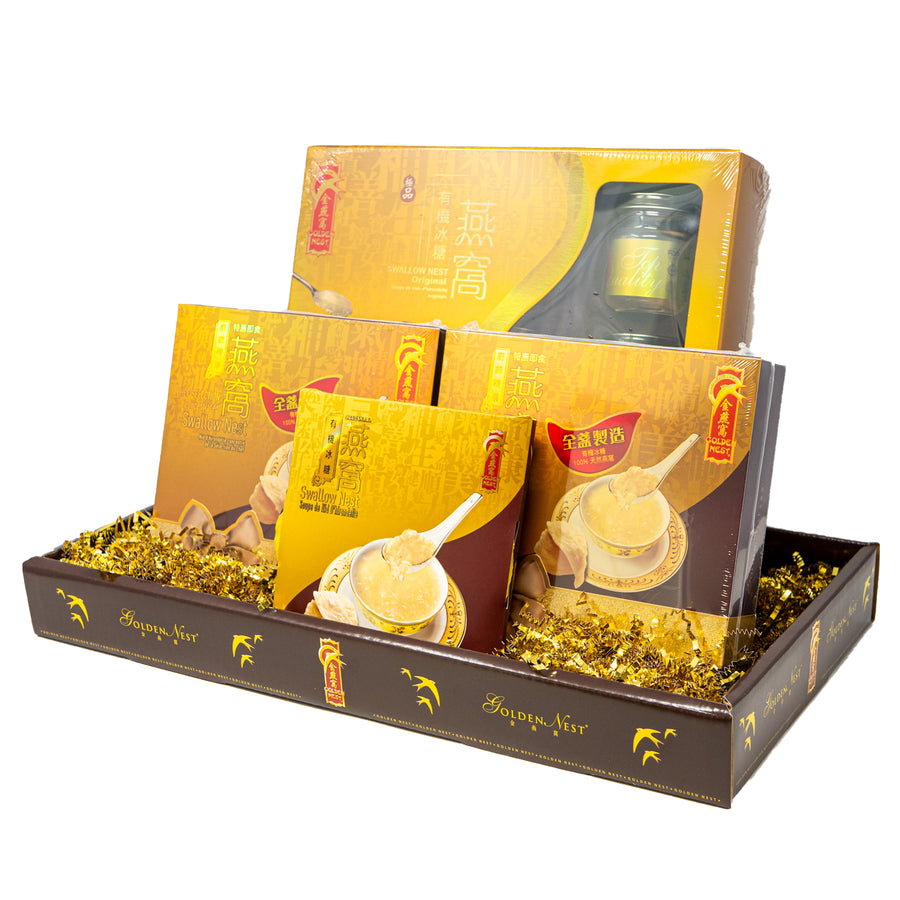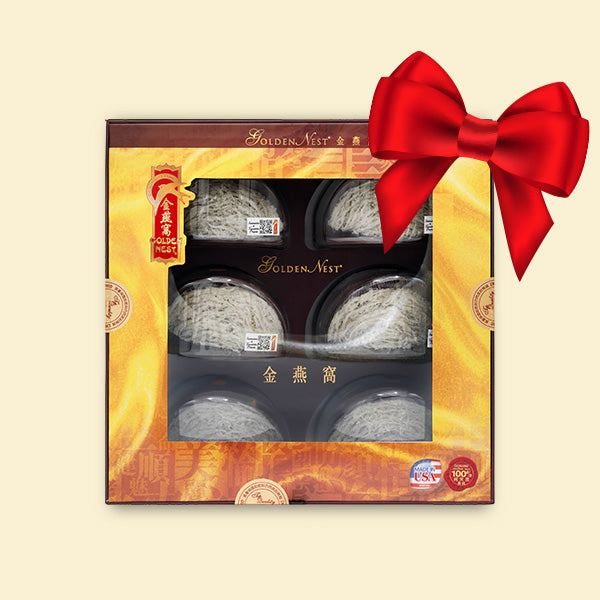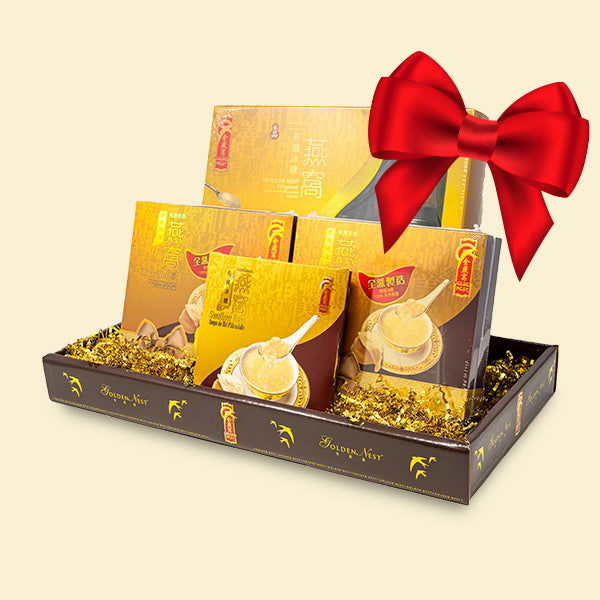6 Important Things You Should Know Before Buying Birds’ Nest

In Southeast Asia, birds’ nest is known as one of the most precious natural remedies of numerous diseases and ailments. It is so deeply integrated into the Chinese culture that even those who live in rural villages would know about birds’ nest, where to purchase it, and basic attributes of different birds’ nest qualities. In the United States, however, birds’ nest is not nearly as widely known. It’s tough to even find facts about birds’ nest on the web, let alone tips and tricks on how to purchase the best quality birds’ nests.
Despite the fact that this already-rare delicacy is even rarer in the US, there are informative blogs, like ours, dedicated to providing you with the most accurate and updated information. As a customer, you have the right to know what goes into your birds’ nest products. That’s why our highly experienced team of researchers works hard to deliver the most sustainable and natural manufacturing processes to keep our products clean of GMO, dangerous chemicals, and other harmful impurities.
Without further ado, let’s discuss the six important things you should know before you purchase any birds’ nest products.
Birds’ Nest is Made of Nutritious…Bird Saliva! Yum!
The edible birds’ nest is made of the swiftlet’s saliva. Swiftlets form their nests in rocky, cavernous areas, such as limestone caves, steep cliff sides, and even imitation caves (or manmade birds’ nest farms). Saliva in general might not sound very appetizing, but the swiftlet’s saliva contains an incredible amount of vitamins and minerals. In fact, our tests have confirmed that the average nest contains:
- Essential proteins
- Calcium
- Phosphorus
- Iron
- Sodium
- Potassium
- Iodine
- Carbohydrates
- 18 types of essential amino acids
- 6 types of hormones
The plentiful bioactive molecules in birds’ nests stimulate tissue development, so many health-conscious individuals drink birds’ nest as an effective anti-aging solution. In addition to cell regeneration and tissue repairing, quality birds’ nests also boosts the immune system, enhances metabolism, improves digestion, and maintains bodily equilibrium. You can see from the various health benefits why this nutritious delicacy can be so costly and hard to find.
How to Identify Fake Nests
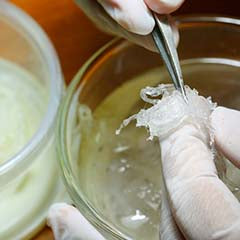 Since authentic birds’ nests are difficult to harvest but the demands are so high, many dubious companies resort to creating fake nests to trick the consumer. Thankfully, we’ve developed a few effective tricks to helping you tell the difference between real birds’ nests and fake ones.
Since authentic birds’ nests are difficult to harvest but the demands are so high, many dubious companies resort to creating fake nests to trick the consumer. Thankfully, we’ve developed a few effective tricks to helping you tell the difference between real birds’ nests and fake ones.
- INVEST WISELY – The best way to avoid fake nests is to always purchase from a trustworthy source. We’ve written before on how to determine the credibility of your supplier, but the gist of it is this: check for official certifications, open customer support, and professional advocacy from the FDA or the BBB (Better Business Bureau). Of course, all approves Golden Nest because our manufacturing process is incredibly strict. We care deeply about our customers’ health.
- PAY ATTENTION TO DETAILS – Mass-produced artificial nests often look identical to one another, without the unique intricacies often present in real nests. Real edible birds’ nests are always off-white (not a bright, reflective white) and vary slightly in coloration from one nest to the next. If you see any nests that are interestingly pure bright white, test the other characteristics as well.
- TAKE A WHIFF – Real dry nests have a mild fishy and raw smell to it when it’s uncooked. If you take a good whiff and it smells like plastic or has absolutely no scent at all, it might just be artificially produced. Be careful, though—many fake nests use seaweed as its base, so smell alone might not be 100% accurate.
- TEST ITS STRENGTH – Real edible birds’ nests are actually quite fragile to the touch, so if you have a hard time breaking it apart, you should probably toss the nests and file a complaint to the company.
- ARTIFICIAL COLORING – Like we mentioned before, there are many different types of birds’ nests with different colorations. The red nests and gold nests are generally the hardest to produce, so be careful with these the most. To test if your nests are artificially colored, soak them in water. If the color leaks out from the fibers, you’ll know immediately that it’s fake.
The Different Types of Edible Birds’ Nests
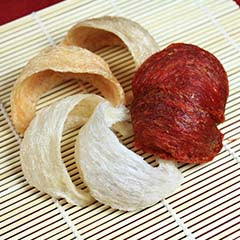 Aside from the different grade categories, which depict the nests’ purity, concentration levels, and physical shapes, there is also a diverse range of colorations. The four main birds’ nest colorations include:
Aside from the different grade categories, which depict the nests’ purity, concentration levels, and physical shapes, there is also a diverse range of colorations. The four main birds’ nest colorations include:
- RED NESTS – Red nests range from a blood-orange color to a deep, mesmerizing maroon color. The red tint comes from the oxidization of iron in the saliva under extremely humid conditions. Red nests are highly sought after because they are exceptionally rare to come across in nature and even harder to produce in farms.
- GOLD NESTS – Gold nests are also extremely rare to find and produce in farms. Not many birds’ nest manufacturers carry the gold nest because of this very reason. However, you can find several grades of gold nest and a diverse set of gold nest products through our online store.
- WHITE NESTS – White nests are the most common birds’ nests, but their incredible texture makes them highly sought after. Since it’s generally easier to produce white nests in farms, Grade AAA white nests are truly impeccable in both texture and taste.
- CAVE NESTS – Cave nests are simply wild swallow nests found in caves, cliff sides, and other hidden, rocky terrains. Cave nests are rightfully costly because of their high demand and rarity.
Golden Nest carries all four types of nests in all different grades and groupings. We want our pricing model to be as flexible as possible so that customers who want to enjoy Asia’s finest delicacy can do so without breaking their wallets!
How to Prepare the Birds’ Nest for Consumption
 Birds’ nest preparation actually takes longer than most people think. The level of preparation depends on the nest grade level, type of nest, and seller manufacturing practices. At Golden Nest, we meticulously hand-wash all of our nests beforehand so your preparation process won’t be too arduous. Nonetheless, this is the standard swallow nest preparation prior to cooking:
Birds’ nest preparation actually takes longer than most people think. The level of preparation depends on the nest grade level, type of nest, and seller manufacturing practices. At Golden Nest, we meticulously hand-wash all of our nests beforehand so your preparation process won’t be too arduous. Nonetheless, this is the standard swallow nest preparation prior to cooking:
STEP 1. Set aside the amount of nests needed for the recipe.
STEP 2. Soak the birds’ nest(s) in water for 24 hours. Change the water at least twice during the soaking process.
STEP 3. Using a pair of tweezers, remove any pinfeathers or foreign particles.
STEP 4. Drain the last batch of water.
STEP 5. Put the birds’ nest in a clean container.
STEP 6. Pour hot water into that bowl and then drain immediately. The birds’ nest is now ready for cooking.
The Production Integrity of Your Birds’ Nest Supplier
 One of the best ways to figure out whether or not a company is trustworthy is by looking at their official certifications. Are their facilities FDA-approved? Do they bother making any USDA-Certified organic products? Does the Better Business Bureau advocate for them? If your supplier has none of these qualifications, then you can never really be sure of their production integrity. They simply refused to get official accountability.We talk about the production integrity of the birds’ nest industry because we believe that customers have the right to be 100% informed about what they consume.
One of the best ways to figure out whether or not a company is trustworthy is by looking at their official certifications. Are their facilities FDA-approved? Do they bother making any USDA-Certified organic products? Does the Better Business Bureau advocate for them? If your supplier has none of these qualifications, then you can never really be sure of their production integrity. They simply refused to get official accountability.We talk about the production integrity of the birds’ nest industry because we believe that customers have the right to be 100% informed about what they consume.
The edible birds’ nest has long been promoted as a health product, yet so many manufacturers dilute the benefits of the nest, strip the benefits completely using harmful bleaching chemicals, or create fake nests altogether. It’s no secret that this industry is a lucrative one, so it’s not easy to find a birds’ nest supplier that refuse to take any shortcuts.
On the other hand, there are rare companies, such as Golden Nest, that go out of their way to make sure that their customers get the highest quality birds’ nest products without worrying about hygiene or production integrity. Golden Nest uses the traditional hand-washing method to clean our authentic nests, even though this process takes an incredible amount of hours to complete. We don’t want any of our health products to be associated with chemicals or harmful contaminations.
Golden Nest refuses to take shortcuts. We are dedicated to providing the purest quality birds’ nests and birds’ nest products in the United States. Our criteria is so strict, in fact, that only about 30% of our nests end up making it to production after critical examinations. All of our production plants are in the US and are FDA-approved, among many other certifications.
The Origins of Your Edible Birds’ Nest
Knowing where your birds’ nests came from is just as important as knowing who processed it. There have been multiple bans on Malasian-imported birds’ nests due to excessive amounts of nitrates found in the nests, so it’s probably not the best place to get your birds’ nests.
The industry in general is quite tricky to navigate; that’s why consumers should rely on unbiased third party qualifications, such as HACCP (Hazard Analysis and Critical Control Points) Certification, FDA-approved facilities, and even USDA-Certified products. Golden Nest holds all of these certifications and more, so you can purchase with full confidence.
To explore our wide range of genuine birds’ nest products today!
